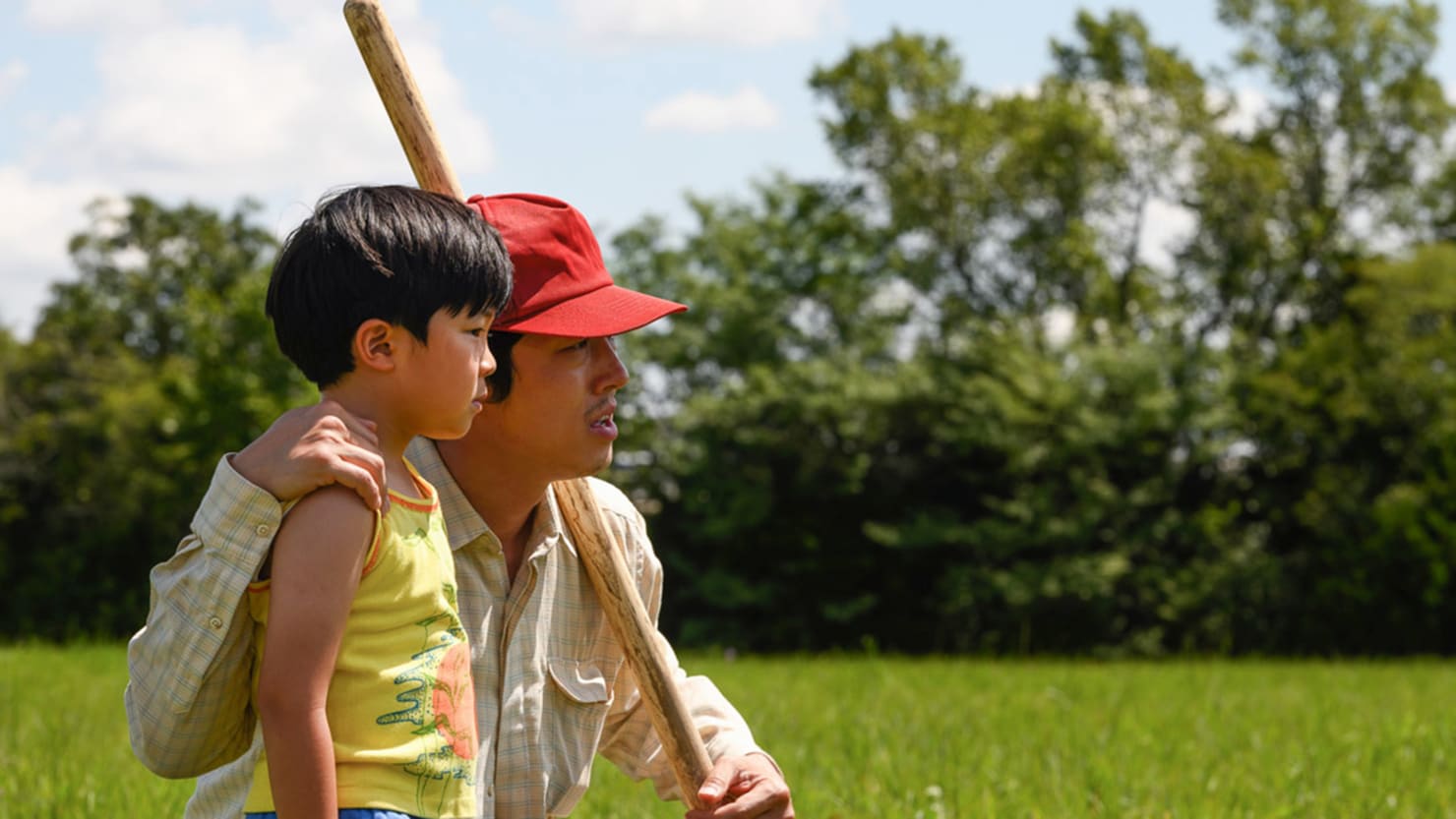MInari begins with the Yi family moving from their California home to a five-acre site in rural Arkansas. The beautiful green lot is empty of crops, with a home trailer crouched in the middle. When the family gets out of the car, Monica (the mother of the family, played by Yeri Han) realizes that this house – this life – is not what she chose.
The stairwell entrance to the house is so far off the ground that she has to enter – the first of many sacrifices she makes for her husband Jacob’s (Steven Yeun) dream of starting his own farm. His plan is to cultivate Korean crops, hoping to act as a supplier to Korean-Americans looking to cook family dishes. After this farm is successful, he reasons, he and Monica will never have to go back to working as chicken sexers, as they did in California.
Director Lee Isaac Chung’s semi-autobiographical film separates fictions from the American dream – let the work consume you and you can find a path to upward mobility. With You can find enough work that gives you more personal agency, stability for your family, and an inheritance for your children. Or at least the opportunity to not work as hard.
Obviously, achieving that dream is especially difficult for working-class Korean-American immigrants in rural Arkansas in the 1980s. Starting a farm only offers the illusion of control. To avoid building a well or paying for county water, Jacob manually clears the land until he finds his own supply. (He tells his son to never pay for anything he can get for free). But the waterline eventually runs dry. The production order, from the grocer that the family was supposed to supply, fails. At one point, Jacob is so physically exhausted that Monica needs to bathe him. Without a supportive community or close friendships, she eventually turns to pity and superstition, believing that her struggle with her husband made her son, David (Alan S. Kim), and the family’s grandmother, Soonja (Youn Yuh-jung) , get sick.
But Minari it is also a good-hearted film, less interested in the generic vitriol of racism or displacement than inviting us to a house of people who are doing their best with the hand they have received.
At first it surprised me and then it enchanted me. When watching films about Asian American immigrant families, I often alternate between two impulses: the pressure to find some universal experience, or at least identifiable, although I know that the story is, of course, just one version of it. I have become so used to the history of the immigrant organized around trauma, nostalgia and alienation. More recently, I’m thinking about Alan Yang’s Tigertail, a beautifully filmed Netflix original where all the happiest moments take place in a nostalgic past, with the modern timeline remotely presented in dark tones.
Instead of, Minari takes an intimate look at the interstitial moments of life and makes a story that could plausibly be read as a tragedy, instead, it seems more like a piece of life. The film invites us to a family home and to small family gaffes that come from cultural barriers. The family thinks Mountain Dew is mountain water, and the kids drink glasses of it for breakfast. My own mother recounted, on several occasions, the banal struggle to get around the language barrier when buying groceries after her family emigrated from Taiwan to Kentucky, of all places. Buying with a limited command of the language is a great way to buy salt when you want flour, or to be tricked into thinking about a brand of sugary baby cereal as a healthy food.
The themes of diaspora films are treated with intimacy and care. Mother and grandmother meet again after years apart. Soonja packs her bags full of house spices and kindly scolds Monica for not crying over anchovies “again”. The youngest son, David, struggles to get along with his grandmother, who is totally unfamiliar to him. Soonja finally teaches him about minari herb, the film’s namesake, which can grow and thrive in any climate. They plant it along a stream bed, on the outskirts of the farm, on land that would otherwise not be used.
“The minari’s survival is a powerful metaphor for life as an Asian-American immigrant …“
Meanwhile, Jacob myoopically focuses on his farm, increasingly at the expense of his family. Monica has sex with chicken when she is at home, so she can do it more effectively at work. Soonja insists on contributing to household chores, even after suffering a stroke. Ironically, the drive for constant toil is what devastates the family’s first crop.
But the minari is spared. The minari’s survival is a powerful metaphor for the life of an Asian-American immigrant – it can be read as resilience, no matter the climate or the value of using land that no one else would think to cultivate. But the herb mainly reminds me of the sheer randomness of survival and the cost of always looking ahead. When saving for the future becomes the language of everyday life, it is not so difficult to lose sight of what that sacrifice was for. Sacrifice, instead, becomes a hidden trend – diverting all attention to the final victory of achieving the “American Dream”, after which a new and better kind of life can really begin.
But life happens independently, stubbornly, as with the passage of time. Life is slapping David’s cowboy boots on the green grass, and his grandmother calling him a bastard because of a card game. It is seeing Korean culture as a symbol of pride, and Soonja bragging: “He is not like that, he is a Korean boy”. The film may not tell us what Jacob plans to do with the minari, or how the family will make up for its financial losses. But it ends with Jacob finally prioritizing them and remembering why he dreamed of a farm in the first place.
